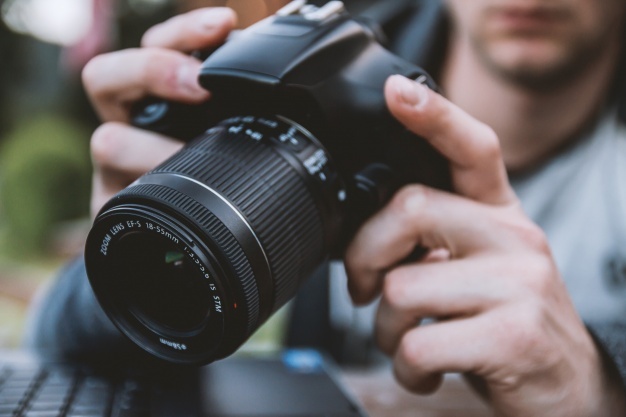In this era of social media, where the biggest concern surrounding all is to look good in every frame or picture that is clicked, the demand for photography services is blooming. From wedding photography to commercial photography, from fashion photography to product photography, the demand for photographers is on the rise. But what makes a photographer stand out from this den of competition? Photography skills, yes. A good camera, a must (Does it even require mentioning!). And what better a camera there is than a DSLR! But again, this becomes a challenge in itself for some and confusion for many, when they have to choose a DSLR. Here are a few parameters which will help you clear the air about your delusions regarding the DSLR you wish to acquire.
How many bucks?
The quality of the camera you wish to possess is directly proportional to the quantity of cash you can afford to invest in buying a DSLR. There are a wide variety of DSLR cameras available in the market, starting from quite feasible ones to otherworldly expensive ones. The weight of your pocket seals the deal. Few 'running' costs are also incurred, though cheap, still should be looked upon:-- Batteries: Just like we keep power banks for our phones during travelling hours, cameras also need battery backup. For travelling photographers, a backup of batteries is a must.
- Memory Cards: Imagine running out of memory during a wedding shoot! How many curses will you take back home? Honestly, no photographer wants to take this big a risk, irrespective of them being a wedding, fashion or travelling photographer. The memory running out can lead to missing out on any unplanned shoots, and life is short of blowing any chances.
- Camera bag: Even before we buy any mobile phone, we have decided on the covers we are gonna buy, for protection primarily. Same goes for your camera, which is in fact, more dear to a photographer than his/her mobile phone. Camera bags are a safe investment that prevents any future losses and cost.
What kind of photographer are you?
One of the major factors in determining the right camera is your field of photography. The usage determines the model you should buy. Are you into Urban photography? Editorial photography? Sports photography? Event photography? The requirement varies with the usage. Basic features exist in almost all models, but you should pick the model according to your requirement.Beginner or already running the show?
Your level of expertise is another area to consider before buying a DSLR. If you have just begun, then you should probably go for a low end one, not too expensive and not overly complicated to use. Once you get the gist of the photography world, reach consummacy in using a DSLR, you can upgrade to a better model. However, things are different in case you already are a professional photographer. You are then, hopefully, omniscient about cameras and photography.All about the megapixels.
The post-clicking work also plays a crucial role in deciding the model of a DSLR. The resolution varies with different models. If you require just mere sharing of images digitally, or even printing small versions, then low-resolution DSLRs are sufficient. But if the objective goes beyond normal sharing, and for enlargement printing (commercially, in case), then high resolution are the ones to bank upon.Old becomes gold.
Some DSLRs are compatible with gears of other cameras as well. Memory cards and batteries can come in handy, only if you are lucky enough.Other features to look out for.
The higher the price, the more features there exist. As cogent as it is, we should also keep in mind the requirements we specifically have, according to our line of work. Investing big bucks in cameras with multiple features is not a smart move. The requirements decide.- Burst mode: The camera's ability to shoot a burst of images. Effective for sports photography.
- Anti-shake Tech: New technology is coming up in the market. Extremely effective for stabilisation.
- Transferability: Everyone has their own convenience. Some prefer the USB transfer of images, whereas others opt for wireless ones. An important feature to look out for.
- Flash: Mostly,Pro photographers opt for cameras with no built-in flash, only a hotshoe. whereas the amateurs prefer built-in ones.
- Dust protection: Another latest in the market, this is a must-have for the action enthusiasts.


